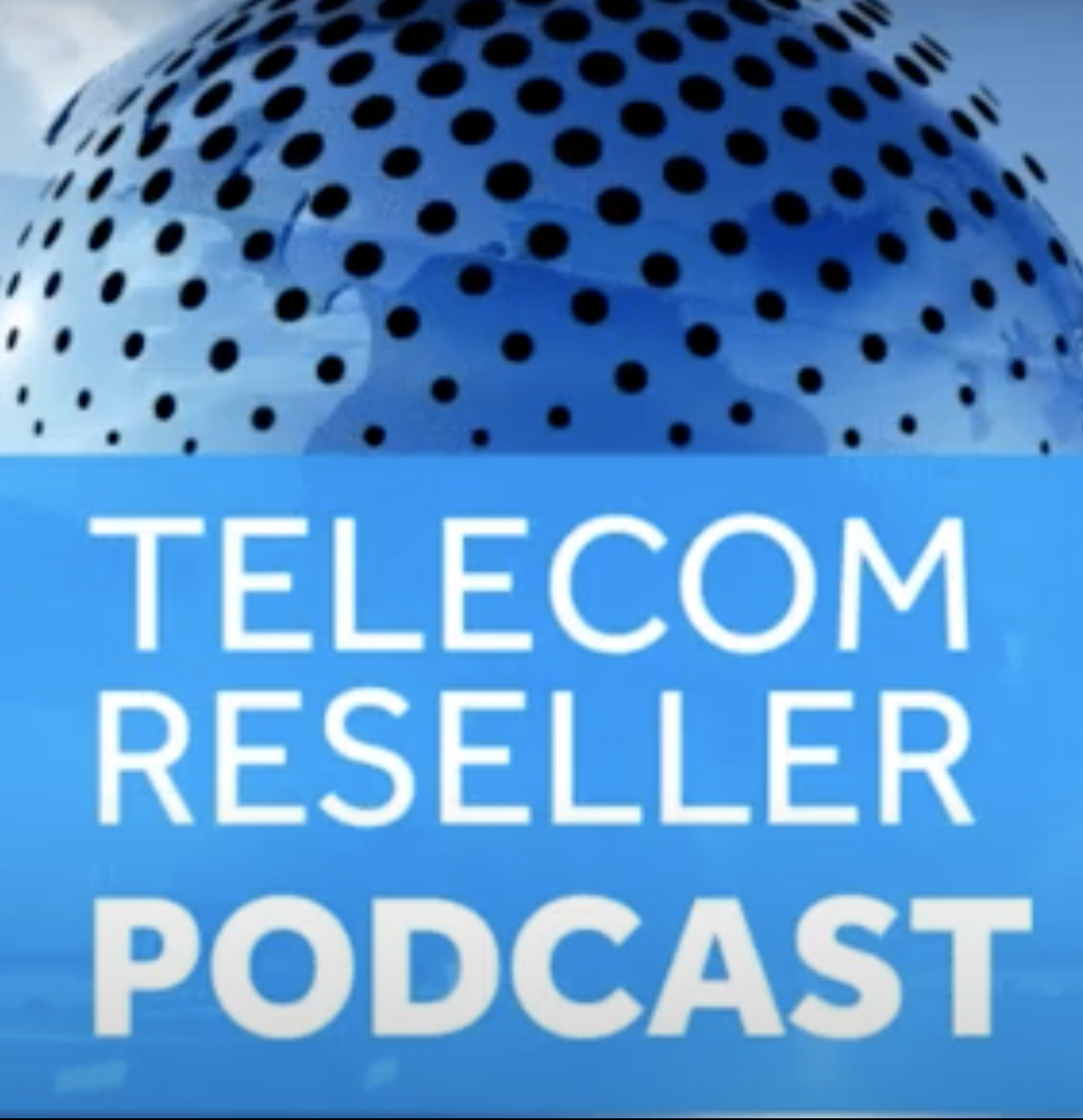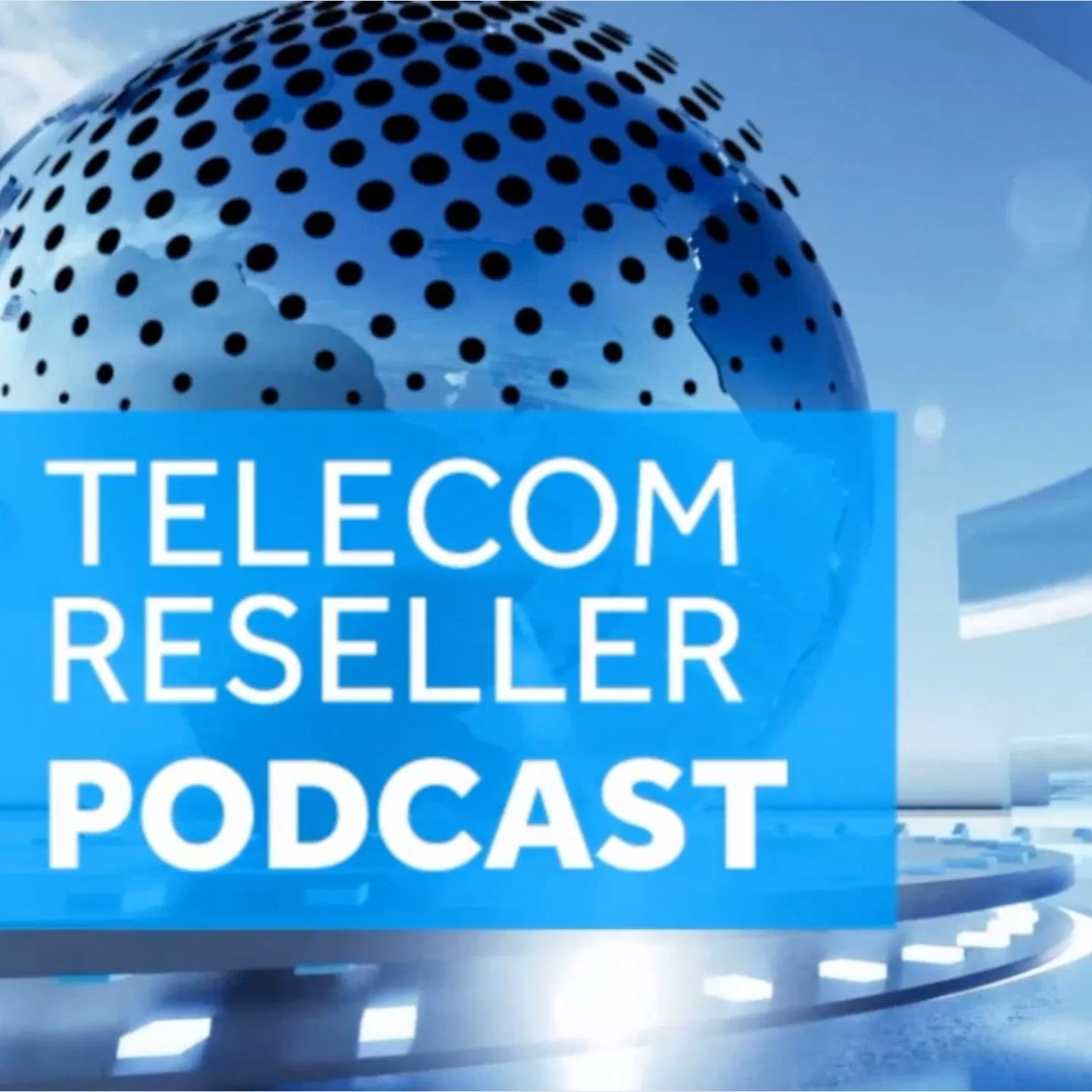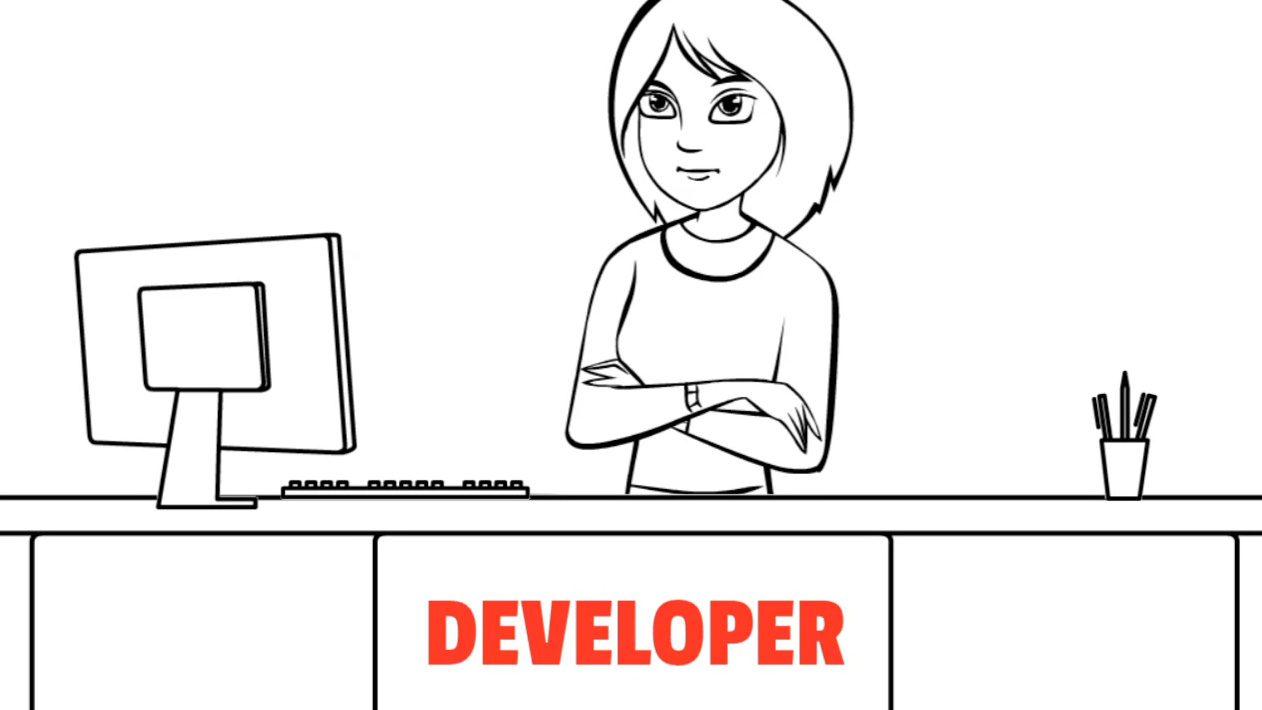The Dirt podcast covers stories of entrepreneurs who have been through it all, they discuss all things business and what these entrepreneurs learned on their path to successfully scaling their businesses.
Tom was invited to join Jim Barnish on episode 63 to talk about Tom’s journey with A2P SMS, his learnings, his failures and his outlook on Red Oxygen and the future of A2P SMS for businesses of all sizes.
Take a listen.
TRANSCRIPT
Intro of Tom Sheahan:
But eventually traffic will get blocked. And then you could get fined up to $10,000 per SMS if you are not registered with The Campaign Registry, or your traffic can get blocked. And that can be devastating for a small business because let’s say you run a hair salon and you send out, you know, 500 messages a month, right? All of a sudden, half of them get blocked, right? Well, you lose half your customers. What does that do? Not only does it do, do your revenue, it cuts at half. If half the people don’t show up for their haircuts, right? Or doctor’s appointments, or dentist appointments, or vet clinics or dance studios, you name it. All these small businesses are the ones who are gonna be most affected by this campaign registry because they’re relying on text messaging to communicate with their customers and employees, but they have the least resources to manage this complicated process.
Jim Barnish:
Hello, and welcome to another episode of The Dirt, the podcast where we dig into the stories of entrepreneurs who have been through, well, the dirt, and are now successfully scaling their businesses on the path towards a liquidity event. Today, we are thrilled to have with us the founder and CEO of Red Oxygen, Tommy Sheahen. Red Oxygen is a leading company in the world of communication and tech specializing in messaging solutions for businesses across the globe. We go deep into some super important things happening in the macro SMS market that should have all business owners listening up and leaning in. This is The Dirt podcast, and I am your host, Jim Barnish. To support us, please check out our sponsor, orchidBlack@orchid.black, and subscribe on your favorite podcast platform.
Jim Barnish:
All right, Tommy, let’s dig right in. Can you start by sharing your personal journey leading up to the founding of Red Oxygen?
Tom Sheahan:
Sure. Um, well, I graduated, uh, from Southern Methodist University in Dallas, uh, in 87, right when the, the death penalty started. And I had roommates were playing football and so forth, and I went and I got into technology. Um, uh, I got recruited by Arrow Electronics to sell semiconductors to startups, and there were about 50 kids in my training class, and they hired about three or four from SMU, and we all wanted to get the heck out of Dallas. Um, go to a bigger city, go to New York, go to San Francisco, go to LA go to Chicago, and they’d secretly just hired us for Dallas. So we started in the Dallas market, and, um, unbeknownst Dallas, they hired all the SMU kids for Dallas. I figured it’d be easier for them to transition and so forth to the, to the real world. Um, and I was selling, uh, uh, um, electronic components to a company called InnerVoice.
And at the time, there was probably 20 or 30 people. And, um, uh, one day there’s, uh, Marjorie Taylor, uh, a different Marjorie Taylor, not Marjorie Taylor Green. Not different, not, not the bad one. This, this one’s a good one. She called me up, me, met me up for lunch, and, and, uh, I thought it was date. And, uh, uh, she, she was, it was a job interview, and she’s like, would you like to come work for us? I was like, oh, okay, sure. I never thought about it. And, uh, ended up working for Inner Voice. And they were a lovely company. They were kind of one of Texas’s High Flyers at the time. In the 90s they did IVR. So press one for your account balance, press two for your, and, um, I moved to Nashville with them, um, back in the 90s, and, uh, grew the market there.
And then they offered me a position to open up the Australian office, and I was in my early thirties, and it took me two seconds to say, you’re paying my airfare, my food, my rent, and I get the same salary and stock options. Hold on, let me think. Yes. Um, so I moved to Australia, uh, fell in love with the country, and it is a wonderful country. Um, and, and it’s, it’s, it’s a very interesting country because, you know, they don’t like to leave. They kind of have a, um, self-deprecating personality. You know, they, they don’t know how wonderful they are. They’re like, um, they, they don’t know how smart they’re, they don’t know how wonderful they are. They’re, they, they, they, they, they’re always looking for, for assurances. Um, and, um, um, and Australia was a GSM only country. Uh, and that in regards to technology, you know, they look to Europe to go a certain way.
They look to the US to go a certain way and like, oh, the US screwed up this way, we’re gonna go the European way and vice versa. So it’s an each an interesting, uh, amalgamation of different cultures. Um, and the Australians went GSM only, which is the European standard for, uh, wireless, uh, and GSM, if, if all of you know, is, is group systems mobile, it’s what we use today. Um, and, and a part of GSM is text messaging, um, and text messaging. It was built into the GSM networks, and it was SIM based. And one of the reasons why GSM took off was most of the world is, is not wealthy. And they could sell you a SIM for 10 cents or a dollar, and then you could buy your own use phone and so forth. And you could be a subscriber. Where all the US carriers and networks were all, uh, phone based.
So they’d have to sell you a $300 device or $200 device, or now there’s a $1,000 devices, and then they’d have, you’d have to pay it on payments. And most of the world doesn’t have sophisticated credit systems. Uh, or, or they’re wealthy. You know, we gonna eat this year, we’re gonna buy the new iPhone. The question’s really easy, they’re gonna eat (Jim Barnish: mm-hmm. <affirmative>). Um, and, um, I fell in love with text messaging. I was actually working on a project with Foxtel, and they were sending, uh, ‘Hey, we’re canceling your cable’ for $8. They’re spending $8 to send out a notification to mail and so forth print and, and say, Hey, we’re cutting off your cable tomorrow, or, or next week, or next Tuesday, or whatever. And I was like, why can’t we send this via text? Right? Well, this is, I was starting to text, this is 1998.
And, and you gotta remember, the US was not texting, right. The US this was, this was a foreign European application. Um, and, um, um, and I, I thought, Hey, this would be a great, opportunity to, I always wanted to build a recurring revenue company, right? I always wonder something that I, I didn’t sell a bunch of software and then we’re down to zero for the next month, and I gotta send some more software or services or whatever, right? Because then you, then you really got highs and lows. I wanted to do recurring revenue. And part of my job with InnerVoice was I sold it. We bought a company called Bright Voice Systems, which was, um, they sold the prepaid calling card, uh, prepaid, uh, mobile phone system to, uh, British Telecom or O2 at the time. And, they were getting like 8% recurring revenue from this, like British Telecom was selling the, the, the phones and, and billing and all this other stuff.
And they thought that they were British Telecom customers, but they were actually, uh, InterVoice Bright customers, and they were getting recurring revenue off that. And, and I was like, this is a great model, right? So I came up the idea of building a plugin for Outlook, to send text messages to people’s cell phones, and then they can reply back to their outlook, ‘cuz everybody’s using Outlook, right? Right. And, we thought I’d sell to the mobile operators who could be branded, you know, Swisscom or Vodafone or whoever. And, um, uh, red Oxygen was founded and we were the world’s first application to person messaging, uh, before all these CPaaS providers, you know, Twilio’s and Bandwidths and so forth, uh, they didn’t exist. Uh, and most of the carriers did not open up their SMSCs yet, right? So we were actually delivering these messages off Nokia 51 tens and a laptop and a bunch of SIM cards, and we still use that method in certain markets that are very difficult to deliver.
Um, and, uh, Red Oxygen was founded and we thought we’d sell to the mobile operators, and the mobile operators would sell to the enterprises, and, you know, we’d be a unicorn. Um, the mobile operators did not turn out to be the best channel to market. And so we pivoted to the enterprise and we, you know, kind of completed our solution suite of integrating into Gmail, integrating into Excel, having a web-based solution, all these enabling tools that allow people to send text messages without a developer. And, and we’ve grown since then, and we’ve pivoted the enterprise, but we were never, um, VC funded. So, you know, when Telstra offered us a direct connection to their SMSC, which is like a landing slot at Heathrow Airport, right? You know, for an airline. Right? Um, and I didn’t take it because I didn’t have the capital I I couldn’t commit to, I don’t know what it was, like, maybe $10,000 or a hundred thousand dollars a month, whatever the number was, whatever it was, I couldn’t afford it (Jim Barnish: mm-hmm. <affirmative>). And, uh, so we didn’t do the direct connection. So, uh, we just focused on building these enabling tools and, and, and, uh, working with partnerships. And we never really kind of competed in the API space. Um, and now we are, because of The Campaign Registry and, and what opportunities and difficulties that brings to the industry, but also the opportunities it brings to the industry.
Jim Barnish:
So you mentioned, you mentioned the campaign registry, um, and, uh, we’ll get back to Red Oxygen in a second, but there’s, there’s some groundbreaking things happening in your sector, right? Um, talk about what The Campaign Registry is and how people need to be thinking about it.
Tom Sheahan:
Okay. Um, and, and this goes back to the earlier conversations. Most of these telecommunications authorities have, um, always had inter carrier fees where carrier A sense carrier B, carrier A has to send, give some money to carrier B. And going back 20 years ago, a lot of these countries were deregulating selling off their wireless carriers, you know, um, and a lot of investors were like, Hey, I don’t want to go into the Australian market and buy into a secondary carrier or fund a secondary carrier if Telstra or Swisscom is the behemoth in that market. And they’re going to say, and they’re gonna dictate whatever happens, right? And so most of these telecommunications authorities are much stronger, so they’re like, Hey boys, you all need to play fair. You know, you need to play fair. We’re gonna set the inter carrier fees and so forth, okay?
(Jim Barnish: mm-hmm. <affirmative>) The US has a… This is much as much cultural as it is technology, right? So, and you have to look at this from an anthropology perspective, right? The US is very much anti-government, government bad, you know, government don’t take over my healthcare, government don’t tell me what to do, right? Except when women’s rights are concerned. And so inter carrier fees have been around the world for decades, okay? And I’m not gonna name the name, but there’s a certain CPaaS provider that’s a very dominant player in this space, sued the FCC to say, ‘Hey’, cuz you go back 10 years ago, the carriers were charging people to receive a text and to send a text, receive a call, and to place a call. And, and that also affected the adoption rates of cell phones in the US right?
Because people didn’t give out their cell phone number, right? Cause like, Hey, I don’t want you racking up my, my phone bill, right? Because I only get 300 minutes on Sprint or whatever, blah, blah, blah. (Jim Barnish: mm-hmm. <affirmative>). So adoption rates and, uh, penetration rates were always like really low in the US because of this, right? And so that faded away and the US eventually adopted the European and Asian model of, of texting like, Hey, don’t charge people receive a text, you know, charge ’em when they send a text, right? So, so inter carrier fees have been around for decades, right? And so this cpass provider sued the FCC to say, ‘Hey, you are getting money when I send a text to somebody’s phone and you have this whole short code business, you can’t double dip’. So there were no inter carrier fees in the US until March of 2022.
And that’s when they started implementing this, The Campaign Registry. And The Campaign Registry is an industry consortium. So it’s not the FCC as much as I would like for the FCC to take over this, um, because you’re, you’re seeing the flaws in self-regulation, and this is a great, you know, microcosm of what not to do self-regulation. And so, so they’re started doing inter carrier fees. So as of March, 2022, every application to person messaging has to be registered on the campaign registry, right? And, and when you register yourself or your clients, you have to submit what is your EIN what is your address? What is your website? What is your message content, um, what is your throughput, right? And then you are vetted and whether you can send messages per month, and you have a campaign, a monthly campaign fee based on your volume.
You have a per message fee, you have a vetting fee, you have, um, uh, a registration fee. And this is, we talked about poor self-regulation. T-Mobile has decided, you know, to charge you $250 if you don’t send a text message on their network every 60 days. What hair salon’s gonna know what network they’re on, right? (Jim Barnish: mm-hmm. <affirmative>), what doctor’s office gonna know what network their customers are on, they’re not right. Anyways. Um, so with the campaign registry, there’s additional fees and fines, and if you are not registered, your traffic’s gonna get blocked. And that blocking is just starting this month. You’re gonna see it more and more ramped up. I think they’re kind of giving it more forgiveness right now because, you know, they’re being flooded with applications of registrations and so forth. But eventually traffic will get blocked, and then you could get fined up to $10,000 per SMS if you are not, um, uh, registered with The Campaign Registry.
And that can be devastating for a small business because let’s say you run a hair salon and you send out, you know, 500 messages a month, right? All of a sudden half of them get blocked, right? Right. Well, you lose half your customers. What does that do? Not only does it do to your revenue, it cuts in half if half the people don’t show up for their haircuts, right? Or doctor’s appointments, or dentist appointments, or vet clinics or dance studios, you name it. All these small businesses are the ones who are gonna be most affected by this campaign registry because they’re relying on text messaging to communicate with their customers and employees, but they have the least resources to manage this complicated process, right? So they’re not gonna know, right? And most of their software vendors, right, that they’re buying the text messages from, from their ISV.
So somebody’s written some vet office, um, software, or somebody’s written some dance studio software or some gym software. Most of these software packages have no idea how many text messages this dentist office sent versus this dentist office sent, right? I was talking to a very large provider in the dental industry, and they have 41,000 dentist office, right? And I said, what are you guys doing about this? And they’re like, we’re just trying to register a 41,000 dentist. And then I said, what are you doing about the additional cost? We don’t know. We gotta figure that out, right? Because they don’t know how bad this is gonna be when it hits their bottom line, right? I mean, and, and if you don’t know, you know, one dentist office may send 500 messages and you’re charging ’em 150 bucks for the software, right? But then you’re charging this other guy 150 bucks for the software, but he’s sending out 10,000 messages, right? Well, the cost of good sold has tripled, and, and now you’re losing money on the guy that’s sending out 5,000 messages because you don’t know how many messages he’s sending out,
Jim Barnish:
Right? So what, what, what’s something, uh, or some things that business owners can do to be more proactive, right? Like, I imagine there’s a lot of education that comes with the times that we’re in.
Tom Sheahan:
Well, they need to reach out to their, their CRM vendor to make sure they are registered, right? Um, so, and, and, and a lot of ’em are just allowing that to happen. Like, I talked to my vet office and they’re like, oh, our software vendors gonna do that. Okay, but have they registered you? He’s like, I’m on the board. I said, are you registered? He’s like, I know nothing about this.
Jim Barnish:
Hmm.
Tom Sheahan:
You know, I I, I haven’t given him my, you know, business number, my EIN, I haven’t registered. So if you are buying text messages from somebody, whether it’s your CPaaS provider or your software provider, make sure you are registered, right? Make sure you are registered and you have a Campaign Registered id, and now you can port that to another provider, right? It’s, it’s not theirs, it’s yours. It’s tied to your EIN number and your business. So it’s not owned by the software vendor. It’s not owned by the CPaaS provider.
Jim Barnish:
Got it? Got it. And, and what, like, what, how is business changing for you? Like, how, how is, how is the way that you fit and Red Oxygen fits into the landscape changing with all of this Campaign Registry rollout?
Tom Sheahan:
So what we see is our advantage is we can go to these software vendors to say, ‘Hey, Twilio was just delivering your text messages. We can deliver your text messages and we can provide you with end user billing’, right? So we can quantify that and we can sign up all of your 41,000 dentist office to text messaging plans. You know, you can have a small, a medium, a large, extra large, and so forth. And instead of this being a loss leader for you, this could be a revenue generator for you, right? So either we can bill and collect from those end users because we’ve been doing this for 23 years, or we can provide you with the data and you bill and collect from your end users, right? As a separate bill, or you can add it to your existing infrastructure. So we can provide you a flat file and you can add these items, but we allow you, so we provide compliance, so we’ll make sure all of your customers are compliant.
So, your, all your dentist office are compliant. We’ll make sure that they’re invoiced or billed for the traffic that they use and any additional fees and fines. We can also add the technology to make sure we send a text message to a T-mobile number every 60 days so you don’t get fined. And the problem is, this stuff is going, it keeps changing, and they keep moving the goal posts, right? I mean, T-Mobile initially was gonna charge $50 for every account registered, right? Imagine if Verizon did that, and AT&T then you gotta pay registration 150 bucks to the carriers, then a set up fee, then you know, so your costs have tripled.
Jim Barnish:
Right?
Tom Sheahan:
Right? And, you gotta manage this. You can’t just say, ‘Hey, oh, it’s text messaging, it’s cheap’, it’s not cheap anymore, and it needs to be qualified. And, you know, and it, it’s particularly hard in the US because SMS was so cheap, right? When SMS was, you’re only paying a third of a cent or half a cent to, you know, Twilio, Hey, no big deal. Just add it. Just, they, and, and because all these CPaaS providers, they’ve all been focused on selling to the developer, right? (Jim Barnish: mm-hmm. <affirmative>) They’re all, I mean, you drive down the Highway 101 in Silicon Valley, and what do you see? Twilio: ‘ask your developer’, well, your developer doesn’t care about this problem. You know what, they did their job. They got the text messages to go through, they’re done. The funny, I was talking to this investor at the SaaS Open, right?
And, um, she was eating lunch and we were in the lunchroom or eating breakfast and, and I was giving her my pitch on what’s going on, and there’s a guy standing right next to us. He goes, ‘Hey, we’re in a real estate company. We’re getting blocked. And the developer finally sent me the freaking email to, to get registered.’ And I was like, she’s like, ‘is he in plant?’ I’m like, no. I said, swear to God? This is what’s happening all over the world, right? And, and they’re probably not gonna do anything until they start getting blocked,
Jim Barnish:
Right? Right. So, um, is there, is there a path that, um, they can be a little bit more proactive, obviously, other than listening in right now and saying, holy cow, I gotta call somebody. But, but is there, is there a path that allows for a little bit more education or is going to allow for a little bit more education and advance that? Or is this really something that’s just gonna be incredibly reactive for most business owners?
Tom Sheahan:
It’s gonna be gonna be reactive, because, I mean, you know, even, even the trade shows we’ve been to, right? The SaaS Open and we went to, uh, IT Expo in Florida, and, and I’m like, why are you not talking about this? This needs to be front and center of a communication. Oh, well, we haven’t thought about it, right? It, it’s almost like we’re gonna have a covid moment and we’re Moderna, right? The shit’s gonna hit the fan. And, and like, we even had conversations with Cisco and they’re like, you guys are spot on. No one’s doing this. No one’s addressing this. Right? They all think it’s, and, and I even spoke with the former FCC chairman, he was like, we didn’t think about this. I’m like, how can you not think about this? How it’s gonna affect small businesses? The larger high volume users, the Googles, the Facebooks, you know, the Amazons, they’re big enough and they’re sophisticated enough.
This is no big deal. This is just operations. They probably have a whole department that just does SMS, right? Cause they’re sending millions of messages. But, but these smaller people that have relied on SMS as part of their, their business flow, they don’t have the resources. And even these software developers, right? You know, you’ve written some vet software, or you’ve written some dental software or dance studio software, you’re gonna have to assign your programmers to now write a telecommunications module to count the number of text messages each one of the, your customers are sending and make sure there’s error processing in it. Make sure the messages was went through, make sure the number’s are the correct number of digits, yada, yada, yada. They’re basically gonna have to build a red oxygen or partner with us.
Jim Barnish:
Yeah. Well, I mean, there’s, there’s a lot of research that, that suggests. I think like 65- 70% of consumers prefer SMS as their go-to receiving for notifications from businesses. So, you know, it, it’s, it’s what should the consumer be thinking about as it relates to, um, as it relates to this problem?
Tom Sheahan:
Most of the consumers aren’t gonna know this is happening, right?
Jim Barnish:
They’re not gonna get notifications
Tom Sheahan:
<laugh>, well, they’re not gonna get the notifications. In fact, my vet who I talked to about this, I said, Hey, I’m not getting your test right. They, they’re like, really? I said, I told you about this.
Jim Barnish:
And they don’t know what to do about it.
Tom Sheahan:
Well, and, and you know, the office manager calls, you know, and they’re like, oh, yeah, we got it handled, we’re fine. Right? And they’re not doing anything about it, right? There’s this whole line of discommunication, right? And, and, and it’s gonna affect someone small business, right? To realize, oh gosh, you know, um, why am I not getting these text messages, right? Why am I not getting it? Um, and but the, the business owner, why didn’t Betty show up for her Tuesday appointment, right? Right. Why did we lose that hair appointment? Right? And then they’ll say, Hey, we missed you the last couple times. And she’ll be like, well, I never got your text messages, right? So there, there’s, there’s gonna be a point of disconnection, right? And until it, it’s, it’s a massive problem. You know, it’s, it’s, you know, gonna be an issue.
Jim Barnish:
So obviously you guys are riding the market wave now, we’re going to be riding the market wave for some time, but I imagine 1998, you were probably a little bit early to market for, uh, some of what you brought into the world, right?
Tom Sheahan:
We, we were so early, I, I remember coming back to Texas, right? Talking to some VCs going, ‘this text messaging stuff is stupid. Who’s gonna stay in a text message sitting on your phone? I get 500 minutes from Sprint for free.’ You know, granted it was Texas, but in, in, in the early in the 2000s. But, you know, it’s gonna happen, guys. Like, it’s, it’s gonna happen. It’s gonna be a problem.
Jim Barnish:
Yeah. So what, like, what, what are some of the, some of the lessons learned from being too early to market that, um, that you’ve got for other founders?
Tom Sheahan:
Keep your cost down. You know, I mean, the worst thing is, is you start spending money that you don’t have, thinking you’re gonna get capital. And also with the markets the way they are now, most good companies, long-term, we’re born during recessionary times. I’m not saying we’re in recession because we’re still having growth overgrowth, right? But it is more difficult to get capital, right? So, you know, um, and there’s also a lot of government programs too. Um, like we get RnD tax credits from Australia. If you are a founder, you know, they’ve got export marketing development grants, commercialization grants. Australia does, New Zealand does, Switzerland does, Singapore does, even the US does. So, you know, look around for government programs. Um, but think about your business. How are you gonna make money, right? (Jim Barnish: mm-hmm. <affirmative>), you know, people worry about like, oh my gosh, you know, all these funding’s dried up.
And it’s like, no, all these companies were, you know, giving their employees back massages and having, you know, Venus and Serena talk on their users conference without thinking about how they’re gonna make money. Like, at the end of the day, it doesn’t matter what your business is, you have to make money, right? And you have to make a profit, right? And, during these recessionary times, it kind of brings people back to earth, right? What are you doing? What problem are you solving? How are you gonna make money doing it? Um, and, you know, be frugal.
Jim Barnish:
When, when you, um, you know, obviously some, uh, some navigation required when you guys were too early to market, um, around, uh, just general, uh, ability to, to, to drive growth. But I know you guys also did a lot of education, um, and on the market on the value of, of what you were offering and, and how, so how did some of that impact the growth of Red Oxygen, the education, the awareness, the things that you were, the strategies you were basically doing and employing to educate the market?
Tom Sheahan:
Well, but you can’t, unless you’re, unless you’re big enough where you’ve got advertisement, you can’t really move markets, right? I mean, you know, you, you, you have to like study markets and see what are people doing, right? And why, right? So we didn’t even enter the US market until 2009 because we knew it was a loss, right? Right. I remember getting a phone call from the project product manager of Office in 2003. He goes, I want to put your software on Bill Gates and Steve Bomber’s desktop, and I want to text everybody in the room. And we’re in a launch office 2003, because he got ahold of our software. I had a friend of mine from SMU, she got us into the product group, and he was texting his Singaporean brother-in-law, and the Singaporean brother-in-law was texting back about his wedding plans, right? He’s like, this is freaking amazing.
Like, oh my God, I’m texting my brother-in-law. He’s showing up on his phone in Singapore, and he’s texting back, granted, this is 2003. So he calls me up and he’s like, I’m gonna put some Bill Gates, Steve Bomber’s desktop, and we’re gonna text everybody in the room. And I had to say, ‘Hey, it’s not gonna work’. He goes, ‘what do you mean?’ I said, ‘it works in Fiji, in Africa and Asia and all over Europe, but it doesn’t work in Seattle’. He goes, ‘what do you mean?’ I said, ‘the operating systems or the communication systems that the US have implemented are OS two and Apple Macintosh, and the world’s on Windows’. He goes, ‘oh, wow’. You know, they, they set up these proprietary networks, right? (Jim Barnish: mm-hmm. <affirmative>) Because of deregulation, right? So, and then this comes into the anthropology sector. Why did the US adopt iden, which was Nextel, right?
And, and you look at, Motorola had 95% market share of the handset space in 1992, and now they’re irrelevant and they’re owned by the Chinese, right? What did they do? They got greedy and they got arrogant. They wanted on the network, they wanted the handsets, they wanted my, my, my, my mine, right? (Jim Barnish: mm-hmm. <affirmative>). And what did Qualcomm to, they wanted know the chip set. So it was all proprietors all tied to the chip set, right? In fact, at and t had ripped out their infrastructure in 2000 because no one would make them phones. Cuz if you wanted a phone and you were making your, your choice on which carrier to go with, like, who, he’s got a cool phone, he’s got a cool phone. In fact, Verizon had to pay Apple to configure the iPhone to work on the CDMA network because Apple’s like, we’re not paying for that. Why wouldn’t we pay to get our phone to work on your network? You’ve got 300 million subscribers, there’s 6 billion people I could sell this phone to, right? I’m not wasting my resources. Right? So when you have proprietary networks, and, and so AT&T converted GSM to get the handsets right? Of course they got the, the iPhone first, right? So it’s, you know, you can study history and it repeats itself. <laugh>
Jim Barnish:
Study cycles always, always hopefully make the movie
Tom Sheahan:
Some money off of it
Jim Barnish:
Yeah. So when, when you were, when you were, um, in this mode though, I, I imagine partnerships and collaborations and other things with people who had maybe a little bit more money and a little bit more opportunity to educate were important to Red Oxygen’s growth, right?
Tom Sheahan:
Yeah.
Jim Barnish:
And talk about any in particular that really helped to fuel the growth and any, anything that went through.
Tom Sheahan:
Well, we initially, we really thought we’d sell through the mobile operators, right? So like, our first customer was Swisscom. And you know, Swisscom is like the valedictorian of mobile operators in Europe, right? And, and they’re Swiss like, you know, they get shit done and it’s freaking perfect. And e even their invoices were beautiful with like these gorgeous paperclips, right? You know, they’re the Swiss the paper is like this beautiful font anyways, you know? And, and they made us a better customer, right? And, and we thought we could get to the mobile operators, they could do the education because they had the market, they had the dominance, they had the billing relationships. But the, the mobile operators were, you know, even, even we launched our product and I think it was like $3 million in revenue to Swisscom. And, but to them, that’s nothing.
Like, they’re a billion dollar company and they, they the like, Hey, yeah, it’s a nice product, but we can focus our resources on another product and make a hundred million dollars. So it’s too small and it’s almost, you know, and, and you make mistakes, right? You know, we should have gone harder after the API space, um, earlier on, um, than we are now. Um, we probably shouldn’t have focused on the mobile operators as long as we did, uh, and realized that was a bad channel. Um, and, you know, you make mistakes along the road, you know, you make, it, it’s healthy to question yourself. It’s healthy to even ask your team, are we on the right path? Right? Yeah. Are we doing the things right?
Jim Barnish:
And and when you were, when you were going through that, what, what was the reason that you did take so long to not focus on the mobile operators and focus more on API?
Tom Sheahan:
I was so convinced it was a good strategy. You know, I, I was so, I mean, cuz we had a use case, a good case study with Swisscom. It was, they were effective and they, they, they probably were the most, the best in the world with application to person messaging without one. Uh, I think they had like 300 or 400,000 users on it. And, and that’s a lot for a country of 6 million people. Yeah. Um, and, but it was Swisscom, so it was like their AT&T. Um, and we thought we could replicate that, you know, um, and we really, we really couldn’t. Um, and it, and it wasn’t that big of a product for them. And another thing was the carriers were always very focused on billing the MSIDN number, the 10 digit long code, or their, their ms uh, their, their, their mobile phone number.
And the problem with that is, the people that use the product the most are generally in operations. Let’s say it’s a secretaries sending, you know, hey notifications to whatever, or an office manager, whatever. And typically her phone bill was not paid for by the corporation. Right. So they would have to, um, you know, the carriers always wanted to bill it to the cell phone number and that person’s cell phone number wasn’t paid for by the company. So she’s like, screw this. I’m not racking up $300 on my phone bill. Right, right. Or whatever number of messages they’re gonna send. So that was difficult. Uh, and, and you know, we couldn’t get them to change to bill off an IP address or domain name or an email address, even though if we, we could provide the data for that, it, it didn’t work. So.
Jim Barnish:
What are, what are some other, um, call ’em obstacles that, that you had to observe and learn from as you guys growed and navigated the, the changing landscape and, and how were you able to overcome it?
Tom Sheahan:
Uh, perseverance, you know, um, and listening to your team, right? I, I mean, I’ve had employees with me for over 20 years. Um, and, and treat them with dignity and respect. Um, and, and you’ll get other perspectives from them because they care too. They want you success, they want their job, right? (Jim Barnish: mm-hmm. <affirmative>), Treat them like partners and owners, not employees. Um, cuz you’re gonna make mistakes.
Jim Barnish:
How do you do, how do you do that? How do you make sure you treat your employees with, with dignity and respect?
Tom Sheahan:
Well, it’s your attitude. It’s your personal attitude. Um, um, we, you know, we, we still have weekly meetings, right? And realize people have lives, right? You know, like, hey, you know, the good thing about this new technology, you know, we’re on Zoom, or not Zoom, but a, a podcast. You know, let them work from home. They got a sick kid, you know, um, let ’em have a bad day. Right. Pay for their health insurance. Right. Um, you know, that’s a huge concern for people, right? I had one employee who was like, oh, I’m not gonna go hold insurance. It’s too expensive. I’m like, you are, you know, we’re gonna pay 75% of it. And he’s thankful cause he had an issue. We all have issues, we’re all gonna get sick, right? And unfortunately we don’t have universal healthcare at this country. Um, uh, and that’s a huge thing for the US.
Like that’s like major, you know, health insurance is massive. Like, you want to keep and retain employees cuz that’s everybody’s, everybody’s mind, how do I pay for it? Right? You know, how how do I, how do I stay current? Right? And it is, it is expensive. It is, it is super expensive. Our healthcare costs are are, you know, three times what Australia’s expense in healthcare, right? I mean, I mean, our healthcare costs are almost 20% of our budget, right? And you know what it is in Australia, 1% of my payroll earning over a million dollars. Right? So screw your tax cuts, gimme universal healthcare, right? Because not only do they live longer and drink more beer, <laugh> they live longer and their healthcare costs are cheaper. Right? So, I mean,
Jim Barnish:
And Fosters tastes better.
Tom Sheahan:
<laugh>, I mean, copy the freaking plan. I mean, go to Australia and just say, what are you doing? We’re gonna copy the plan. Right. You know? Yeah. It’s not rocket science <laugh>, you know, I mean, we could take the money we already spent in Medicare and Medicaid, which is 8% of our GDP. Right? And that’s what Australia spends on their total healthcare system. We could take that and cover everyone if we implemented, implemented the, the improvements, right? They’ve banned pharmaceutical advertising. We’re the only country on the planet that has pharmaceutical advertising. Right. We’re in. Right. Right. I mean, you know, you want, you want better outcomes, better employees, universal healthcare. Right. You know, so, so, and also, and one of the things is, is probably people feel tied to their jobs cause they have health insurance. Right? I can’t go off and start my own, cause oh my gosh, right. I gotta pay my mortgage, my rent, now I gotta pay thousand dollars a month for health adjourned. Right?
Jim Barnish:
Yeah. It’s actually amazing how, how entrepreneurial the US economy is as a whole compared to other nations. When you look, when you look at the fact that healthcare is the worst and things like that are, uh, extremely expensive, the amount that you need to save up and you need to feel like, well, a lot of people don’t have health insurance.
What’s that?
Tom Sheahan:
A lot, a lot of people just still don’t have health insurance. Right, right.
Jim Barnish:
Or, or that, yeah. Or exactly. Exactly. Exactly. So, so coming back to, uh, the sector and the macro trends, how, how do you think, um, that the just general communication technology sector will call it will evolve over the next five, 10 years and, and how Red Oxygen is able to adapt to some of those changes?
Tom Sheahan:
Well, it’s interesting, like when, it’s always important to study people’s trends, right? And, um, I was even like, um, trying to book something for this weekend, right? And, and the person did not wanna send me an email. I’m like, no, no, no, no. I need to look at this, right? I need to look at this. Uh, and they, and they’re probably, I don’t know, but I would assume they’re a millennial, right? And they just wanted to use text messaging, right? And then they wanted to use Venmo. And I’m like, Hmm, I need that person’s cell phone number to verify that they’re the right, oh, but he doesn’t wanna give the pro number. I’m like, that’s fine, but you’re using the consumer to consumer app, right? But you’re a business, right? And so you have these millennials that are so anti email and, and, and, uh, PC and, and, and they’re, they’re just on the phone, right? And they want everything instantaneous and they want everything as a meme, right? Which is good and bad, right? Yeah. Yeah. And, but this is the way the world is changing, right? They want to scroll through Instagram, right? They don’t want to write an email. They don’t want to send an email to you. Um, they don’t want to.
Um, and how they will come to terms that I don’t know. Right? Um, um,
Jim Barnish:
Soon we’ll be off a TikTok video.
Tom Sheahan:
Yeah. Um, but, and, and it’s also be interesting too, like what happens with The Campaign Registry, right? Right. Because if the carriers make this so onerous for businesses to send text messages, the consumers will migrate to maybe a WhatsApp, right?
Jim Barnish:
Yeah. They already are.
Tom Sheahan:
Well, and, and look at, if you look at the adoption rates of WhatsApp, where there, where there’s high penetration rates is either, there’s poor delivery, right? Brazil had very poor delivery, inter carrier delivery because they adopted the US model. So you had IDEN, CDMA, TDMA, GSM, they adopted the US model, so their, their whole network was screwed up. Same thing with India, right? And or, or SMS cost are high, like Germany SMS costs were like 10 euro cents a message, right?
So people were like, screw that. Like, I’m not having delivery problems, but I don’t wanna pay that, right? Right. So I’m gonna get all my friends on WhatsApp, right? And, and then, or you have a draconian regime like in Saudi Arabia, which is like 95%, uh, um, uh, penetration rate of cell phone users have WhatsApp, right? And that’s because their regime just says, turns off the SMSC, you know, ‘Hey, I don’t wanna, I don’t want a revolution. I don’t wanna, I don’t want people bitching, you can’t march in the streets. I’m gonna turn the text messaging off’. Right? Um, so those are the three components. And if the carriers, you know, make this so arduous, you might see a migration to a platform, you know? So, uh, and, and I also see this as a start of digital regulation though. Um, one of the problems we have in our democracy and all democracies around the world is we have these nefarious actors, um, that are using these platforms to spread this information and lies, right?
So we don’t have an honest public forum anymore where we could get factual information, right? Um, you know, you, um, you know, there are Americans that believe the world is flat, right? Um, and, you know, they go down these rabbit holes, right? And until we do digital identity, right? I mean, like, what is going on with The Campaign Registry? So, you know, they’re trying to block spam, but I could literally sue the FCC to say, Hey, my data’s being discriminated against and Facebook’s isn’t, and Twitter’s isn’t, right? So if you’re gonna post online, identify who you are, right? Right. And, and I’ve, I’ve spoken to several senators, Senator Klobuchar, Senator Masto, and Nevada, and they were shocked that this is going on The Campaign Registry. And I was like, Hey, but this is not perfect, but gives you a template for more regulation from the FCC, right? So if you’re going to post online, give us your cell phone number, give us a government issued id, right? Or if you don’t, you can only post once a day, right? To try to control these bots, right? Try to control, I mean, Vladimir Putin has office towers that are full-time job is spread, this information lies, right? Yep. Like, and, and, and attack. I mean, Red Oxygen was attacked right before the elections because of my comments on CNN. So, um,
Jim Barnish:
No, surprise there.
Tom Sheahan:
Real. Yeah. It, it’s, we are in a cyber warfare. Um, and, you know, um, digital identity is so important, right? Um, so I would like to see more of that, right? So when you are chatting to somebody, they actually are from Iowa, not from Moscow (Jim Barnish: mm-hmm. <affirmative>), right? And, and, and who are they? And how do I identify this person? How do we verify this person that they’re a real person, right? They’re who they are, right? And, and we need to hold all platforms, all media companies accountable, right? Yeah. They are social media companies, but they need to be held liable as broadcast and print, right? So, oh, I’m just a platform. I’m Facebook. You’re a media company, you generate advertising dollars, you’re spreading lies and disinformation about me personally. I wanna sue you for libel, right? And I wanna sue you the person who’s spreading it, right? And until we start holding these platforms accountable, right? Do the same rules and regulations as all media companies, we’re still gonna have these problems.
Jim Barnish:
So last question before we hop into, uh, the founder five. So RCS is a, is a rich communication services is a, is a big term being thrown around as kind of next gen messaging protocol, things like that. What do you, what do you think of RCS? How does that affect what you do at Red Oxygen? How does, how does that affect The Campaign Registry? Things along those lines?
Tom Sheahan:
Well, RCS is, is Google’s answer to iMessage. Okay, well, all right. So, and I, I tried to adopt it, right? But the problem is, and they have the same problem Microsoft has, right? Where you have all these different manufacturers, all these different processors, right? And you’re trying to control the protocol, right? The thing I hate about Apple is it’s a closed environment. The thing I love about Apple is it’s a closed environment. They know what you have, right? They know what processor you have, they know what memory you have. And so, when I first tried RCS, right? Right? I was like, yeah, cool, awesome. I wanna try it, man, this rich content service is freaking awesome, right? You know, well, they thought I had a, uh, like Samsung phone, right? So they sent me the Samsung download where actually was using one of those Nokia phones, Nokia, um, and, and they, they’re like, oh, we don’t have one for that, right?
And I got ’em into like, the senior support people at AT&T, and they’re like, and, and they’re gonna have those issues because it’s not a controlled environment. And also because when it’s a SIM based solution, right? So I have got a SIM so it’s tied to my SIM, I can port or virtual SIM, I can port that to any device, right? Yeah. Now, is every device gonna have that same RCS, right? So is is the Samsung file gonna be the same as the Apple file, or the same as, you know, uh, Yahweh, whatever, right? And so, um, they’re gonna have the same prompt with, with Windows has, right? And it’s not gonna be as smooth. And, and, and, uh, and that’s what we’re seeing. So I would like for it to happen. I think that could be another channel, uh, and maybe, you know, prevent people from going to a WhatsApp or, uh, uh, and, and probably the carriers want it to happen too, so they can keep getting revenue, right? So it’s a carrier-based product, not a, um, a Facebook product,
Jim Barnish:
But Apple probably doesn’t want it to happen.
Tom Sheahan:
Yeah. Apple doesn’t want it either. No. But, uh, and Apple, and Apple won’t play with Google. So it, you know, there’s turf wars. It’s like even your stupid, like calendar, you’re like, your Outlook calendar doesn’t sync with your Google calendars. Like of course they’re not
Jim Barnish:
Gonna, don’t even get me started, man. <laugh>.
Tom Sheahan:
Yeah. I mean, I mean, and, and this is, this is the problem. Unless you get, unless you get, which is not gonna happen, right? Where you get say, Hey, everybody’s gotta play nice right? From the FCC, like, that’s not gonna happen, right?
Jim Barnish:
Yeah. Keep dreaming.
Tom Sheahan:
That’s good and that’s bad. But anyways, but there, there has to be like some standards, right? You know, when you go to Best Buy, you don’t worry that this, this device you’re buying is gonna fit into your outlet. I mean, unless you’re buying a dryer, right? But, you know, there, there, you know, government standards are good. Yeah. Generally.
Jim Barnish:
Yeah. Yeah. All right. So let’s close things off with, uh, with our founder five today. First question I got for you today, Tommy, is what is the top KPI or metric that you are relentlessly focused on?
Tom Sheahan:
Um, messages sent.
Jim Barnish:
And what does that mean to you?
Tom Sheahan:
Well, it means people are using my product. That means revenue’s growing. That means, uh, people are happy. Um, and we had our record month last month, so good. Right? Nice. Best, best in 23 years. So, hell yeah. So people are using the product, um, and, and, and customers are happy. Um, and, and that, that’s our top one. Um, and then second is revenue, and then third is number of signups and cancellations and so forth. Um,
Jim Barnish:
All right. Uh, what’s a top tip for growth stage founders like yourself?
Tom Sheahan:
Get somebody with gray hair that you like and respect personally. Right. Not, not only from a moral perspective, but from a business perspective that has been around the block that can act as your advisor. Um, I have a, a lovely gentleman, uh, named Peter Shore, who’s, he’s kinda like my surrogate father. My father passed away when I was 27. Um, so it’s nice to have someone that can see the forest from the trees, right? Like, you know, cause sometimes you’re a founder and you got so, you know, um, that you don’t see the forest from trees. You’re, you’re just looking at the tree and you’re mad at the tree, and you wanna beat the tree up, right? Another thing is get balance on your executive team, right? And this is not to be politically correct or woke, get a gender balance because women see things differently than men,
Jim Barnish:
Right?
Tom Sheahan:
The, the, they are wired differently and listen to ’em, because you’re both gonna have different perspectives, right? Right. If you are are all male or all female, that’s bad.
Jim Barnish:
Right? Right. Well said.
Tom Sheahan:
And, and try to get those different perspectives so you can be holistic and, and not make stupid mistakes.
Jim Barnish:
Only question…
Tom Sheahan:
Not be so arrogant with your own vision.
Jim Barnish:
Why gray hair?
Tom Sheahan:
Uh, you know, more, you know, you’ve lived longer. I think I you’ve seen it before, huh?
Jim Barnish:
I think I might have one or two here somewhere.
Tom Sheahan:
<laugh>.
Jim Barnish:
All right. Uh, what’s a, uh, book or podcast that’s helped you to grow as a founder?
Tom Sheahan:
Um, well, there was a, a podcast I love listening to, but it’s not, I don’t really like business books, um, and business podcast. I, I like the podcast On Being, which is on hold. It’s more of a spiritual podcast, and it’s more about, you know, keeping one centered and grounded. And, um, you know, we’re all of this, we’re all humans, right? And we’re all discovering ourselves, um, and who we are as people. Um, and I, I think getting grounded from a spiritual sense is important too. And that can be nature. It can be, you know, a an organized religion, whatever. Um, but that’s important too. It, you know, for me it’s, it’s nature. Um, it’s critical, but, uh, yeah.
Jim Barnish:
Yeah, it’s mission critical. I mean, we forget business, but
Tom Sheahan:
It’s not a business. It’s not a business. And I think she’s starting back up again. Kristen Tippet. So, uh, I used to drive on the drive up to Tahoe. I’d listen to her all the time. Time. So, awesome. She’d, and she’d have different guests, you know, uh, rabbis, monks, um,
Jim Barnish:
I’ll check that out.
Really cool.
Tom Sheahan:
All different people and their, and their own spiritual journeys, right?
Jim Barnish:
Very cool. Very cool. All right. What is a, uh, piece of advice that counters traditional wisdom?
Tom Sheahan:
Um, get out? Well, this is probably traditional wisdom, but travel, you know, go see the world, you know, I mean, the best thing for young people to do is get the heck out of you where you live, right? And go see the world. Yeah. And there’s gonna be places you like better. There’s in places you don’t, there’s gonna be people, there’s gonna be ideas. And, you know, even like we just talked about the Australian healthcare system, right? Would, I’ve known that if I didn’t live there. No. Right? But I see how they live, right? I see how that works. I see how their democracy works, right? But we go out and travel, we experience only different food, different people. Some things work better, some things don’t. And there’s differences in societies and travel, travel, travel. Get out, get out and see the world. Go buy around. You can buy around the world ticket for a couple thousand bucks. You get four stops per continent. Um, you got a year to use it. So any young person I talk to is like, go do it. Right?
Jim Barnish:
Yeah. Love it.
Tom Sheahan:
Go see those differences.
Jim Barnish:
All right. What is gonna be the title of your autobiography when you accomplished All you Set Out to Achieve?
Tom Sheahan:
Followed his own path.
Jim Barnish:
Nice. All caps.
Tom Sheahan:
Yep.
Jim Barnish:
Awesome. Tommy, thank you so much for joining today on The Dirt. And I, I hear, uh, through the grapevine that you may or may not be looking at raising some capital, uh, to help fuel the growth going forward. Is that correct?
Tom Sheahan:
We are. Um, one of the things that concerns me is that one of these partnerships with Cisco or the one of the C p A providers really takes off and even partnering with The Campaign Registry, and we get 500 ISVs. We don’t have the resources to support them right now. Yeah. Um, and, and from a technology perspective, the throughputs. And so we’re looking at capital, um, to help execute this. Um, because if it happens, it’s gonna be huge. Um, and it is happening. Um, so we’re worried about the resources that we currently have, and we’re looking for capital to help us execute.
Jim Barnish:
All right. Well, you folks listening and that our capital providers give Tom a ring, what’s the best way for folks to reach out to you for that through LinkedIn? Uh, you
Tom Sheahan:
You can email me Tom dot Sheahan Red Oxygen dot com, and that’s S H E A H A N. Or call me (469) 230-5018 or send me a text.
Jim Barnish:
<laugh>. There you. Yeah, there you go. Send him text. Send them a text as long as it’ll go through. All right. Tommy <laugh>, thanks. If you love today’s episode of the Dirt, make sure you rate it on your favorite platform. And if you really like this, go ahead and leave us an honest review. Thanks again for tuning in to the Dirt.




















